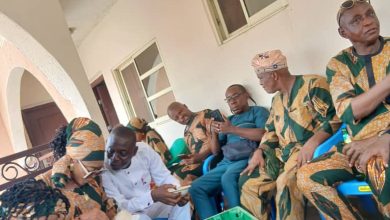
BY TONY OKAFOR
In Igbo cosmology, an Ogbanje is a restless spirit—a child who repeatedly dies and returns to torment a family, defying logic, medicine, and prayer.
It is a metaphor that feels eerily apt for the persistent and shape-shifting security crisis in Anambra State.
Once again, the land is soaked in blood.
Barely recovering from one horror, Anambra was plunged into another with the Ogboji massacre, where about 13 lives were reportedly snuffed out in cold blood.
And just yesterday, Ekwulobia, the heart of Aguata and the domain of the sitting governor, was under siege.
Gunmen not only attacked in broad daylight but danced mockingly on a newly built flyover—a chilling performance of dominance, defiance, and disorder.
These are not isolated incidents. They are the latest symptoms of a deeper affliction—one that has defied every known remedy.
The State Government, in commendable efforts, rolled out Agunechemba and Udo ga-chi security outfits to support conventional forces.
The Anambra Police Command, now under the leadership of CP Ikeioye Orugutu, has demonstrated a renewed sense of urgency and strategic recalibration.
Intelligence-driven raids, patrols, and security summits have become routine. Yet, the killings persist. The fear deepens.
The question, then, is: Why does peace in Anambra refuse to be born?
Is the problem infrastructural? Political? Spiritual? Or is there a deeper rot—one tied to the collapse of community cohesion, the proliferation of arms, and the growing sophistication of criminal networks with seeming ties to shadowy political and economic interests?
Every attack chips away not just at life, but at faith—faith in government, in institutions, and in the very idea of safety.
When the home of the governor is not spared, when marketplaces turn into morgues, when people are buried not with dignity but in silence and shame, the alarm bells must ring louder than ever.
If the security problem in Anambra is truly an Ogbanje, then it must be treated as such—not just with firepower and patrols, but with an honest confrontation of the root causes: poverty, broken justice systems, ungoverned spaces, and the possibility of elite complicity.
This is not just a security crisis. It is a crisis of meaning, of governance, and of collective will.
The time to mourn must also be the time to act.
The State Government must go beyond symbolism and deepen real-time coordination between community stakeholders, local vigilantes, intelligence operatives, and federal forces.
The Federal Government, too, must not look away, as the Southeast teeters on the edge of a slow-burning war.
Anambra has paid too much in blood and silence. Her people deserve not just to live, but to thrive without fear. If peace will not come on its own, then it must be hunted down, wrestled, and made to stay.



